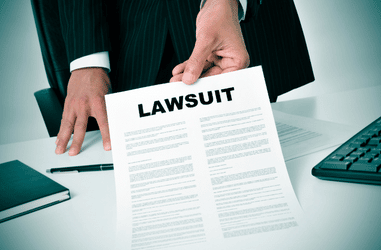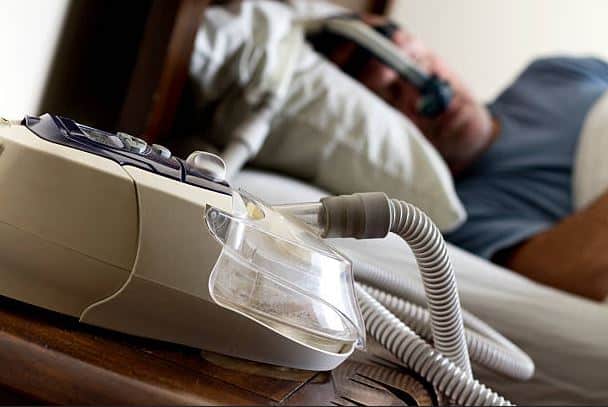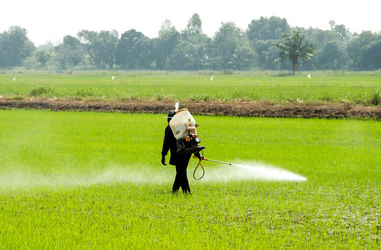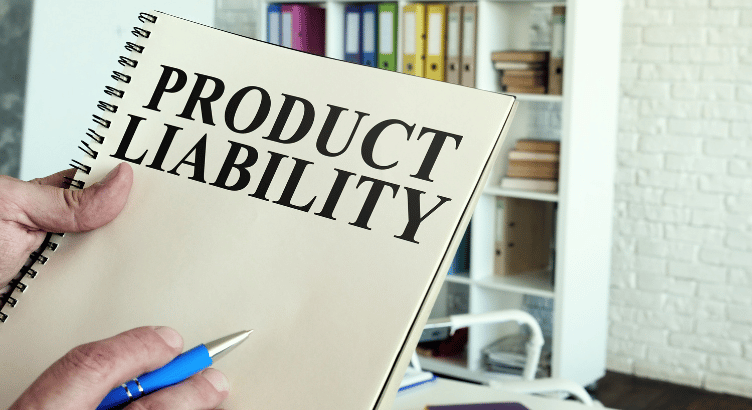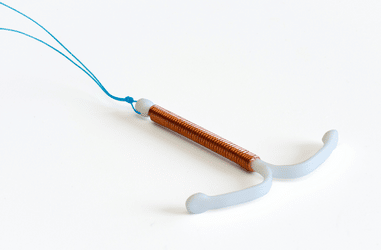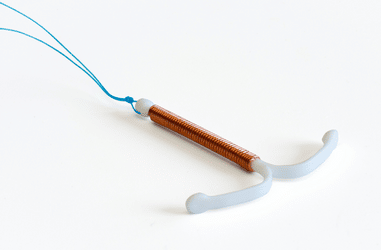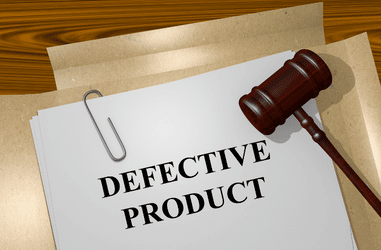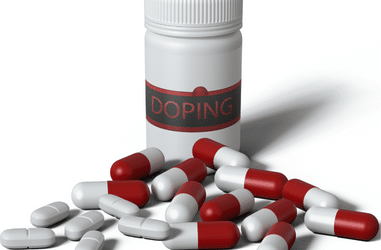Find a Mass Tort Lawyer
For Your Case
We help injured people
enforce their rights in mass
tort lawsuits
Our mission is to help consumers hold pharmaceutical companies, product manufacturers, and other organizations accountable for the injuries their products cause.
Mass Torts Central informs the public about mass tort lawsuits and connects injured consumers with lawyers who can help them.
Trending Mass Torts
All About
Mass Torts
A mass tort is a civil lawsuit consisting of many plaintiffs and a single or few defendants. Mass torts often arise when a consumer product, pharmaceutical drug, or medical device causes harm to a lot of people.
Mass tort lawsuits combine what would otherwise be individual torts, allowing the group of plaintiffs to share resources so they can collectively meet their burden to prove a defendant’s liability.
Each plaintiff recovers compensation for their individual damages, unlike a class action that assigns each class member.
- Interviewing plaintiffs
- Discovery, which involves plaintiffs and defendants sharing evidence
- Choosing specific cases for bellwether trials
- Accessibility of expert witnesses for deposition; the time it takes to interview each plaintiff, which can involve extensive travel
- Gathering and analyzing evidence
- The defendant’s cooperation in offering a reasonable settlement
- Study the claims: Attorneys interview each plaintiff, review medical records, and collect evidence.
- Build the case structure: Attorneys look for injury consistencies, flagging injury similarities across the spectrum of cases.
- File a multidistrict litigation (MDL) claim: The cases move as a group to a federal court for discovery and pretrial hearings.
- Initiate bellwether trials: The MDL judge selects several cases for a “test” trial. The outcome helps attorneys refine their strategies and consider settlement options.
- Negotiate settlements: If this step ends in a stalemate, the case goes back to the originating court for trial.
- Dangerous and defective products: RoundUp or glyphosate-based weed killers, Johnson & Johnson talc-based products, 3M Combat v2 military earplugs lawsuits
- Exposure to toxic substances: Asbestos-mesothelioma and Agent Orange lawsuits
- Large-scale catastrophes: Cruise ships and coronavirus, BP oil spill, and train derailment lawsuits
- Defective drugs and medical devices: Xarelto, Zantac, Allergan textured breast implants, and Philips CPAP lawsuits
- Natural disasters: Holding insurance companies liable for failing to pay out claims after a hurricane, earthquake, fire, or tornado
- Past and future medical bills
- Physical therapy/rehabilitation
- Prescription medications
- Lost income and benefits
- Replacement services for household tasks you can no longer perform
- Home modifications
- Mobility devices
- Pain and suffering
- Reduced earning potential
- Diminished quality of life
 After experiencing Roundup’s damaging health effects, you may have to get a Mass Tort lawsuit lawyer who can help you file a lawsuit for damages. You can look for a lawyer who handles mass torts and class action lawsuits. You can also choose from Roundup lawsuit attorneys who have had success with similar cases.
If you have experienced Roundup exposure and are seeking an attorney to represent you, attorneys in our network can help. You could receive counsel on whether you qualify to receive compensation for medical expenses and other diagnosis-related damages.
After experiencing Roundup’s damaging health effects, you may have to get a Mass Tort lawsuit lawyer who can help you file a lawsuit for damages. You can look for a lawyer who handles mass torts and class action lawsuits. You can also choose from Roundup lawsuit attorneys who have had success with similar cases.
If you have experienced Roundup exposure and are seeking an attorney to represent you, attorneys in our network can help. You could receive counsel on whether you qualify to receive compensation for medical expenses and other diagnosis-related damages.
How Do I Know if I Have a Roundup Legal Case?
If you have a history of using Roundup and recently received a cancer diagnosis, you could file a lawsuit against Monsanto Company (Monsanto), the herbicide’s manufacturer. You can speak with an attorney in our network who handles mass tort lawsuits to find out if you have a legal case. Several cancers are linked to Roundup exposure, including:- Non-Hodgkin’s lymphoma (NHL)
- Leukemia
- Multiple myeloma
Lawsuits Link Cancer Diagnoses to Roundup Use
Monsanto faces thousands of lawsuits from individuals claiming that using Roundup led to their cancer development. The World Health Organization (WHO) has listed glyphosate, Roundup's active ingredient, as a "probable carcinogen." However, the U.S. Environmental Protection Agency (EPA) has concluded that glyphosate is "not likely to be carcinogenic to humans." This is opposite to the California Office of Environmental Health Hazard Assessment’s mounting evidence, which lists Roundup's glyphosate as carcinogenic.Getting Legal Advice About a Roundup Lawsuit
An attorney can help you determine whether your case has merit and if it would be worth it to seek legal action. Mass tort lawyers have access to medical experts and can help prove that Roundup caused your cancer. They also know how to deal with insurance companies and defense lawyers. If you pursue compensation in court, a lawyer will guide you throughout the process.What to Ask Candidate Lawyers When Exploring a Potential Roundup Lawsuit
First, you need to ask a lawyer about their case portfolio in mass tort litigation and what resources they have to build a strong case for you. Before deciding on a lawyer, you can ask these questions:What’s Your Experience in Similar Cases?
The longer someone has been in the legal field, the more experience they should have. You want an attorney who handles similar situations and can give you the best possible representation. Generally, an attorney who has been in practice for a few years has more experience than someone who has just graduated from law school.How Long Do You Think It Will Take Before My Case Is Resolved?
You may not get an exact answer, but your lawyer should give you a general idea based on their experience with similar cases. This gives you a sense of how long you'll have to set aside for the legal process.Can You Tell Me What Happens in a Typical Day of the Case?
A lawyer will give you an idea of what happens during a regular day in your case. Ask them to walk you through the process, step by step. This gives you a better understanding of what lies ahead and what will be required of you.Do You Take Cases on Contingency?
Fees, charges, and costs can vary widely among lawyers, so it's essential to understand what and when you'll be expected to pay. In some cases, Roundup lawsuit attorneys will take cases on contingency, which means they will not be paid unless and until they win your case. Also, find out what percentage of the award will go to them if they recover damages in your Roundup case.Will Anyone Else Work on My Case?
Ask if other people will be working on your case and their duties. This can ensure your case receives proper attention and doesn't fall through the cracks because of miscommunication or neglect.How Are Roundup Attorneys Paid?
Most Roundup lawsuit attorneys will work on a "contingency fee" basis. While you are responsible for paying these costs, the contingency plan dictates that you will not pay unless the lawyer obtains recovery for you. If a lawyer recovers damages for you, you will pay them a percentage of your settlement or verdict award. These expenses include:- Legal research
- Expert witness fees
- Court filing fees
- Investigative work
- Other case-related costs
Recent Roundup Verdicts
Whether you are a consumer, farmer, or landscaper, if you have been diagnosed with non-Hodgkin's lymphoma after Roundup exposure, you could recover compensation. Monsanto has been ordered to pay billions of dollars in verdicts and settlements for plaintiffs diagnosed with cancer after using the company's herbicide. Some most recent verdicts include:Pilliod v. Monsanto Company: $2.055 Billion Monsanto Verdict
Alva and Alberta Pilliod from California were awarded $2 billion in punitive damages and another $55 million in compensatory damages. This was after a jury found that the company’s glyphosate-based herbicides caused them to develop non-Hodgkin’s lymphoma (NHL). Mr. and Mrs. Pilliod had used Roundup for more than 30 years to landscape their property. On May 13, 2019, the jury determined that Monsanto knew or should have known that people exposed to Roundup could develop NHL but should have warned them of this risk. Monsanto was also found to act with malice, oppression, or fraud, which warranted liability for its behavior. “We finally had an opportunity to demonstrate to the jury that Monsanto has been guilty of corporate malfeasance over the past 45 years,” said Brent Wisner, the Pilliods’ lawyer. The award included $1 billion in punitive damages for each plaintiff and $5 million in combined compensatory damages.Johnson v. Monsanto Company: $289.2 Million Monsanto Verdict
On August 10, 2018, a California jury awarded $289.2 million to Dewayne Johnson in the first Roundup cancer lawsuit to go to trial. The jury found Monsanto liable for failing to warn Johnson and the public of the cancer risks associated with its weed killer products, specifically Roundup and Ranger Pro (a glyphosate-based herbicide). The verdict came after weeks of trial proceedings. During closing arguments, the plaintiff's counsel presented evidence that Monsanto had ghostwritten scientific articles that claimed glyphosate was safe and that it had influence over regulatory agencies like the EPA. After hearing the evidence, the jury unanimously found for Johnson on all counts. It awarded him $39 million in compensatory damages and $250 million in punitive damages. The verdict against Monsanto was highly publicized across the globe and drew attention to thousands of other lawsuits pending against Monsanto. They alleged that Monsanto failed to warn consumers about the risks linked to Roundup and Ranger Pro exposure.Hardeman v. Monsanto Company: $80 Million verdict
On March 27, 2019, the jury in the Hardeman v. Monsanto Company trial awarded plaintiff Edwin Hardeman a significant sum of $80 million in compensatory and punitive damages. The verdict comprised $5 million in compensatory damages, which is meant to cover the medical expenses Hardeman incurred and the pain and suffering he experienced after exposure to the herbicide. Additionally, Hardeman was awarded $75 million in punitive damages on account of "malice or oppression.” Punitive damages punish defendants for engaging in especially egregious conduct. They intend to deter similar conduct in the future. Hardeman was diagnosed with B-cell non-Hodgkin’s lymphoma after using Roundup products on his property for more than 20 years. The plaintiff's counsel argued that Roundup's manufacturer, Monsanto, failed to warn consumers about the potential health risks of using Roundup products.What if I Can't Afford a Lawyer?
If you can't afford a lawyer, many Roundup lawsuit attorneys handle such cases on a contingency fee basis. That means you won't pay a dime until they win your case, and their payment comes out of the settlement or award they negotiate for you. This enables people who otherwise couldn't afford to hire a lawyer to get legal representation. The amount the attorney receives is set at the beginning of the case, so both you and your attorney will know how much is coming out of any recovery. Although no attorney can guarantee that you'll win any particular claim, they will inform you about whether you have a valid claim and help you navigate the process. Lawyers Also Consider Their Involvement in Roundup Cases In addition to contingency fees, some law firms also charge small upfront costs (usually called "costs"), but these costs are typically very modest compared to what attorneys usually charge. If you can’t afford small costs, some law firms might be willing to waive them for qualifying claimants. Lawyers typically get involved in a case only when they think they can win big; not every Roundup case requires legal representation. Here are some things to keep in mind:- Lawyers usually only take cases that have a potential payout high enough to cover their time and effort
- The more serious your product liability injuries are, the more likely it is that you'll qualify for a lawyer
- You might have trouble qualifying for a lawyer if someone else was clearly at fault
- Be ready to prove that Roundup caused your injury by showing medical records and test results from before and after the diagnosis
Get Legal Aid
If you can't afford a lawyer, you may qualify for legal aid services. There are legal aid programs in your area that provide free or low-cost legal assistance. If you've been injured after Roundup use or exposure and meet the income requirements, you could qualify to receive help from a legal aid service. Requirements for legal aid in the U.S. include the following:- You may be entitled to a court-appointed attorney if you receive assistance from any of these programs:
- Supplemental Security Income (SSI)
- Temporary Assistance for Needy Families (TANF)
- Veterans' Benefits (VA)
- TANF (Temporary Assistance for Needy Families)
- Free and Reduced-Price School Lunch Program
- If you have HIV/AIDS. You can get free and low-cost legal services if you live with HIV or AIDS. Look for services in your state on the U.S. Department of Health and Human Services (HHS)' website.
- Your case involves a civil rights issue. If the plaintiff is fighting for something with the potential of a class action suit, they can qualify for free legal aid.
- You have low income by the court’s definition. The court may determine that your income is too low to pay for representation. The standard used to measure poverty is usually based on federal poverty guidelines, as the Office of the Assistant Secretary for Planning and Evaluation (ASPE) outlines. Also, if your household income is below 125% of the federal poverty guidelines, you will be considered eligible for appointed counsel.
Get Help from a Roundup Lawsuit Attorney
If you have been diagnosed with non-Hodgkin’s lymphoma and have a history of Roundup exposure, you may be eligible for compensation. While Monsanto continues to deny that Roundup causes cancer, juries across the country have held the company responsible for its failure to warn consumers about its product’s dangers. You may want to talk to a mass tort lawsuit attorney about your legal rights and other concerns you have. They will help you navigate the legal issues surrounding Monsanto's liability and the validity of your claim. Fill out our contact form today to connect with a Roundup lawsuit attorney in our network as you explore your legal options.Roundup Background
In the 1970s, a chemical compound called glyphosate was discovered. It is considered to be unique in the world of herbicides. It is a non-selective herbicide, meaning it will kill any plant it touches with minimal exposure. Many other herbicides are more selective, targeting only certain kinds of vegetation.Roundup and Modified Seeds
Shortly after discovering glyphosate, the company Monsanto began producing and selling Roundup. It took almost two decades for sales to rise significantly. Ultimately, Monsanto’s development of special grass seeds helped Roundup sales. Because these genetically modified seeds were resistant to glyphosate, Roundup could be sprayed on or near this grass without harm. Once farmers and consumers found they could use Roundup without killing their grass, sales improved dramatically. The pharmaceutical giant Bayer eventually bought Monsanto in 2016 for $66 billion, effectively inheriting the litigation that would soon follow.Scoring Plaintiffs
People who use Roundup frequently are considered more at risk due to repeated exposure to the chemical. This includes those who work in agriculture or landscaping. Some plaintiffs have claimed Roundup caused their cancer from simple home gardening and other more casual instances of Roundup contact. Unlike other chemicals, users do not need any special training to use Roundup. There are no required licenses or waivers to sign when buying Roundup. Currently, it is still available for residential use in the United States, despite the ongoing litigation and potential harm.How People Are Exposed to Roundup
Roundup is available as a liquid or in granular form. Gardening stores and hardware centers are common places consumers may purchase Roundup. There are three ways most people are commonly exposed to Roundup. They include:- Breathing in Roundup’s vapor, mist, or dust while using the chemical.
- Accidentally coming in contact with Roundup by brushing up against plants and vegetation while the chemical is still wet.
- Accidentally ingesting the product through their noses or mouths. This happens most often when someone is washing their hands after spraying Roundup.
Injuries You Suffered
Some plaintiffs claim that Roundup exposure (specifically to the chemical glyphosate) may lead to the following:- Leukemia
- B-cell lymphoma
- Non-Hodgkin lymphoma
- Multiple myeloma
Common Non-Hodgkin Lymphoma Symptoms
Some of the symptoms people report after contracting these diseases include:- swollen lymph nodes
- stomach or chest pain
- nausea
- loss of appetite
- low-grade fever
- night sweats
Economic Damages: Medical Expenses and Lost Wages
Economic damages are direct financial costs you have incurred. Any medical expenses, doctors’ visits, tests, medications, and medical procedures fall under this category. This form of compensation includes being reimbursed for travel expenses tied to going to and from doctors’ offices for treatment. Economic damages also include your lost wages. If your medical condition prevents you from working, your lost wages would factor into your settlement. Depending on the severity of your condition, you may also never be able to return to work. Part of your potential compensation package would include loss of future wages for your inability to work at your current job. In the event of a wrongful death, the surviving family members who file a lawsuit on behalf of the deceased would be entitled to receive financial compensation based on their loved one’s lost wages.Household Help
Other forms of economic damage include compensation for household duties or home maintenance. If you performed regular duties around the home such as cleaning or maintaining the lawn, you may need help to complete those tasks. You may be able to receive compensation to hire help for these duties.Noneconomic Damages: Pain and Suffering
Not every damage or loss can be tied to a direct financial cost. Some forms of compensation are intended to compensate victims for their suffering. While it is impossible to calculate the true dollar value of pain and suffering, the law does nonetheless provide for compensation in these areas. Some forms of noneconomic damage include emotional duress stemming from the stressful nature of the suffering. Those suffering from debilitating cancer may also be entitled to compensation for loss of enjoyment in life. This means that if the person suffering cannot resume normal daily activities, they may receive additional compensation as part of their Roundup lawsuit payout for this loss.Punitive Damages
There is a third form of damages a plaintiff may receive. It is called punitive damages. These damages are not tied to the victim’s financial costs or pain and suffering but are intended to punish the defendant for malicious or extreme negligence. Not every product liability case will qualify for punitive damages. But juries could decide to award them to a plaintiff. Juries may award punitive damages as a means to convince the defendant to clean up their act. After years of buildup, the first Roundup trial that resulted in a favorable outcome for the plaintiff came in August of 2018. The jury for the case awarded plaintiff Dewayne Johnson $289 million in damages. The jury felt the company was negligent in warning Mr. Johnson of the Roundup dangers. To punish the company, $250 million of the total verdict was punitive damages. This indicates the jury was angry and wanted to put the company on notice that it should have been more proactive in taking care of its consumers.Roundup Settlement Amounts: What Can Victims Expect?
While most of the Roundup lawsuit plaintiffs have been adults who work in or around groundskeeping or farming, some cases have been brought on behalf of children. These lawsuits claim that some children have health issues caused by their exposure to glyphosate in Roundup.Product Liability
In legal terms, when a manufactured product is believed to cause harm to the consumers using it, it is caused by product liability. On top of this alleged harm, the company may be held liable for failing to let their customers know of the possible harm their product could cause. As of this writing, Roundup is scheduled to be pulled from consumer use in 2023.Average Settlement Payouts
There are no guaranteed payouts for Roundup lawsuits. However, when plaintiffs do secure a settlement, the dollar amounts have a fairly wide range. The exact amounts can vary greatly based on the following:- the victims’ damages
- what the attorneys for these clients have negotiated for their settlement
Who Can File a Roundup Lawsuit?
To qualify for a Roundup settlement, a potential plaintiff cannot merely claim they were exposed to Roundup. A potential settlement requires:- Medical proof the person has non-Hodgkin’s lymphoma, or another disease Roundup is suspected of causing
- Proof the person has been exposed to Roundup or the chemical glyphosate
- The ability to file their claim before the statute of limitations runs out
Lawsuits Link Roundup to Several Cancer Side Effects
Non-Hodgkin’s lymphoma is not the only disease many experts believe is linked to Roundup exposure (specifically glyphosate). Other cancers believed to be linked to Roundup include:- B-cell lymphoma
- T-cell lymphoma
- Hairy cell lymphoma
- Chronic lymphocytic leukemia



